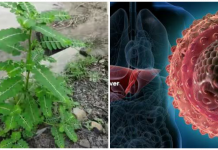Viral hepatitis is the inflammation and injury of the liver by hepatotropic (liver-loving) viruses like hepatitis A, B,C,D, E. Other causes of viral hepatitis are Epstein-Bar virus(EBV), cytomegalovirus, herpes virus, adenovirus(especially newborns), yellow fever virus(a serious cause of hepatitis in the tropics).
| Hepatitis A (HAV) | Hepatitis B (HBV) | Hepatitis C (HCV) | Hepatitis D (HDV) | Hepatitis E (HEV) | |
What is it? | HAV is a virus that causes inflammation of the liver. It does not lead to chronic disease. | HBV is a virus that causes inflammation of the liver. It can cause liver cell damage, leading to cirrhosis and cancer. It is the commonest cause of viral hepatitis globally | HCV is a virus that causes inflammation of the liver. It can cause liver cell damage, leading to cirrhosis and cancer. | HDV is a virus that causes inflammation of the liver. It only infects those persons with HBV. | HEV is a virus that causes inflammation of the liver. Rarely it can cause chronic disease |
Incubation period | 2 to 7 weeks. Average 4 weeks | 6 to 23 weeks Average 17 weeks | 2 to 25 weeks Average 7 to 9 wks. | 2 to 8 weeks | 2 to weeks. Average 40 days. |
How it is Spread? | Transmitted by fecal/oral (anal/oral sex) route, close person to person contact or ingestion of contaminated food and water. Hand to mouth after contact with feces, such as changing diapers. | Contact with infected blood, seminal fluid, vaginal secretions, contaminated, needles including tattoo and body – piercing tools. Infected mother to newborn. Human bite, sexual contact. | Contact with infected blood, contaminated I. V. needles, razors, and tattoo and body-piercing tools, infected mother to newborn. Not easily spread through sex. | Contact with infected blood, contaminated needles, sexual contact with HDV infected person | Transmitted through fecal/oral route. Outbreaks associated with contaminated water. |
The symptoms | Children may have none. Adults usually have light stools, dark urine, fatigue, fever, nausea, vomiting, abdominal pain, and jaundice. | May have none. Some persons have mild flu like symptoms, dark urine, light stools, jaundice, fatigue and fever. | Same as HBV | Same as HBV | Same as HAV |
Vaccine | Two doses of vaccine to anyone over 1 years of age. | Three doses may be given to persons of any age. | None for HCV. Persons should receive Hepatitis A and B vaccines instead | HBV vaccine prevents HDV infection | None available. |
Who is at Risk of viral hepatitis? | Household or sexual contact with an infected person or living in an area with HAV outbreak. Travelers to developing countries, persons engaging in anal/oral sex and injection drug users. | Infants born to infected mother, having sex with an infected person or multiple partners, injection drug users, emergency in anal/oral sex, and hemodialysis patients, health care workers. | Blood transfusion recipient before 1992, healthcare workers, injection drug users, hemodialysis patients, infants born to infected mother, multiple sex partners. | Injection drug users, persons engaging in anal/oral sex and those having sex with an HDV infected patient. | Travelers to developing countries, especially pregnant women. |
Prevention | vaccination or immune Globulin within 2 weeks of exposure, washing hands with soap and water after going to the toilet. Use household bleach (10 parts water to 1 part bleach) surfaces with feces, such as changing tables. Safer sex. | Vaccination provides protection for 20 plus years.Clean up households with bleach and wear protective gloves. Do not share razors, toothbrushes, or needles. Safer sex. Hepatitis B immune globulin for non-responders after exposure. | Clean up spilled blood with household bleach. Wear gloves when touching blood. Do not share razors, toothbrushes, or needles with anyone. Safer sex. | Hepatitis B vaccine to prevent HBV/HDV infection. Practice safe sex. | Avoid drinking or using potentially contaminated water. |
Please see other causes of hepatitis here
Was this article helpful?























Very detailed. Well done